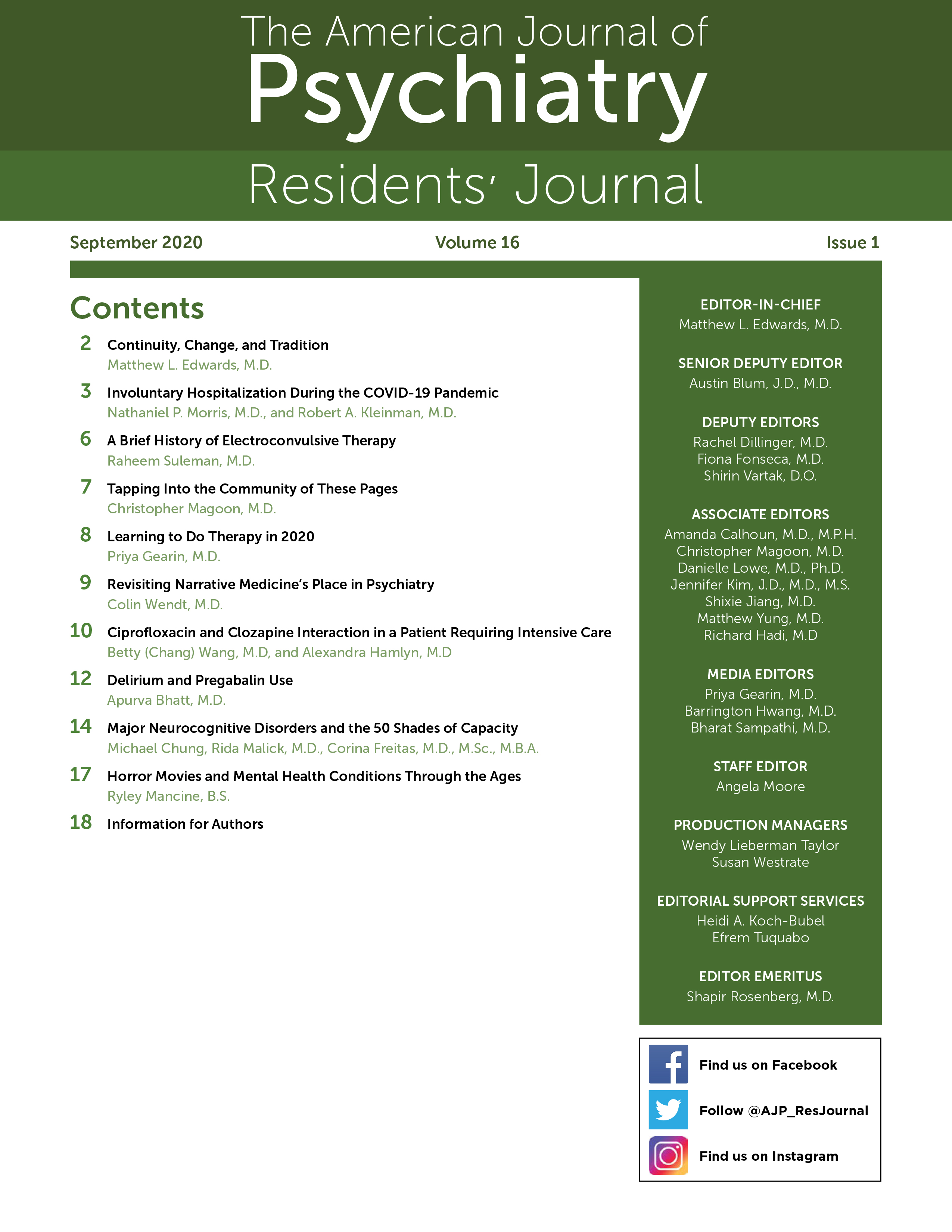Every Wednesday afternoon from the middle of March until the end of June, I plugged in my laptop in a quiet corner of my one-bedroom apartment, using a laundry rack as my makeshift table, and met with patients. As a second-year psychiatry resident, this was my first year of psychotherapy clinic. In normal times, I have been told that learning to do therapy is an intricate process. In 2020—the age of a global pandemic, virtual visits, and protests for Black lives—this process feels, in many ways, different. Because there is a collective trauma that both the patient and I, the therapist, are experiencing, learning to do therapy has been both challenging and incredibly humanizing.
When we first switched to telephone and video visits, there were still many unanswered questions, mostly about how long restrictions due to the pandemic would last. Although initially I thought virtual therapy might be strange, the virtual piece was not the hard part. Now, several months later, we are faced with even more questions. Some patients are worried about returning to their jobs or paying rent. Some are tired of waiting yet ashamed for feeling impatient. Most are grieving the loss of missed experiences. As tragic stories of Black individuals who have been killed by police have surfaced, the communal grief grows. There is so much to mourn right now.
Like many residents, I have wondered whether I am qualified to do this work. After all, I am still learning, and the problems of the world are beyond what many of us have previously experienced. Moreover, I am trying to navigate my own emotions and responses to the pain and loss of the last several months. I find myself drawing on concepts such as cognitive distortions, mindfulness, and all-or-nothing thinking to help both my patients and myself. Although this has been a challenge, it is also a great privilege to listen and be present together. In the past few months, despite my self-doubt, I have felt deeply grateful to find meaning and value in what I am doing.
People have said that my generation will be uniquely adept at telehealth because that is a primary model in which we are currently training. I think we will be adept at so much more. As we encounter so many new experiences, we will become more adaptable and resilient in our own developing practices. Psychiatrists are tasked with drawing insight and uncovering hope in what are often dark situations. As psychiatry residents, we are in the heart of practicing this, day in, day out, and I think we will be better for it.
